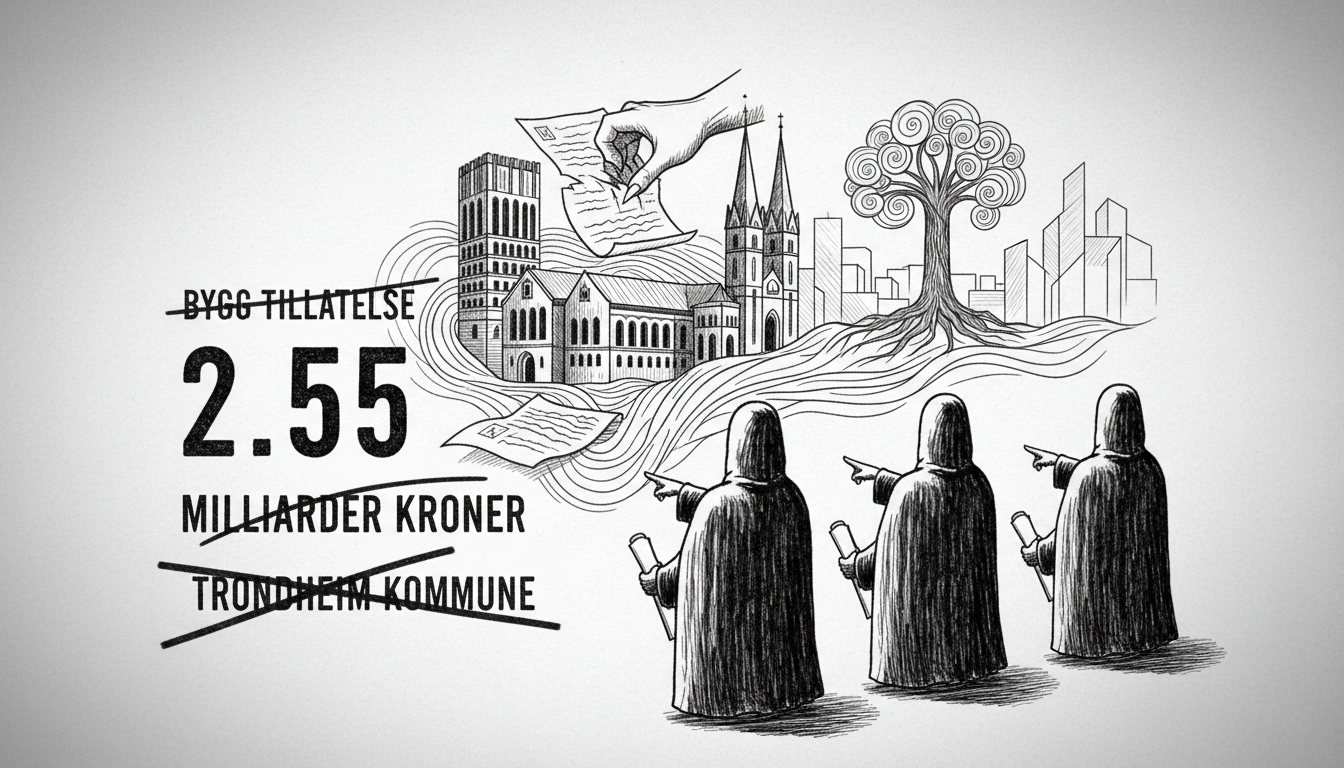Three property development companies are suing Trondheim municipality for 2.55 billion Norwegian kroner after politicians reversed earlier decisions allowing residential construction on agricultural land. The case represents one of Norway's largest municipal liability claims in recent memory and highlights the financial risks of changing political landscapes.
Anders Flaatin Wilhelmsen, representing the developers in court, stated the municipal handling has been unlawful and contained procedural errors. He described the situation as a consequence of political scandals and shifting power dynamics within local government.
The companies—Overvik Eiendom AS, Overvik Lokalsenter AS, and Blekkan Utvikling AS—claim they reasonably expected to develop the area after politicians approved construction plans in 2019. They subsequently invested heavily in planning and preparation. All three companies share the same chairman, Kolbjørn Opsahl Selmer.
Last autumn, politicians unanimously reversed course, designating the land for agricultural use instead. This decision came after Norway's parliament adopted a new national soil conservation strategy, reflecting growing environmental concerns about preserving farmland.
The developers acknowledge politicians can change their minds but argue this particular reversal warrants compensation. They've invested substantial resources based on the original approval. The companies seek either the full 2.55 billion kroner or, alternatively, 688 million kroner covering their documented planning expenses to date.
Trondheim's political parties have long disagreed about the Overvik area's proper use. Some favored residential development while others prioritized agriculture and outdoor recreation. The majority position has shifted multiple times over the years.
Originally designated as agricultural land in 2005, the area was rezoned for housing in 2014. The 2019 plan specifically envisioned at least 2,400 homes, one elementary school, and two kindergartens. Developers had already begun construction on a small portion, with several completed buildings now occupied.
The legal battle centers on whether the municipality violated planning and building laws. The developers' lawyer argues the reversal process wasn't just flawed but completely failed to follow legal requirements. He also claims constitutional property rights violations, suggesting the effective expropriation has rendered their properties virtually worthless.
This case exemplifies the tension between urban development needs and environmental protection in growing Norwegian cities. Trondheim, as Norway's third-largest city, faces constant pressure for housing expansion while maintaining green spaces and agricultural land.
The outcome could set important precedents for municipal liability when political decisions reverse earlier commitments. It also raises questions about who should bear financial risk when development policies change—private investors who acted in good faith or taxpayers through municipal budgets.
Municipal lawyer Lars Marius Heggberget will present the city's defense position in court. The municipality completely disputes any compensation obligation, setting the stage for a prolonged legal battle with potential appeals regardless of the initial verdict.
Similar conflicts between developers and municipalities have emerged elsewhere in Norway as environmental concerns gain political traction. The case underscores how changing political priorities can create substantial financial uncertainty for property developers who rely on long-term municipal planning decisions.

